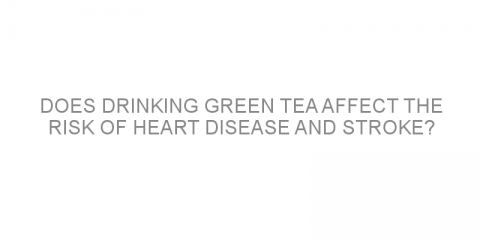In a nutshell This review examined the factors which make a behavioral program for type 2 diabetes management effective. The authors concluded that patients who have poorly controlled diabetes are likely to gain the greatest benefit. Some background Patients with type 2 diabetes (T2D) are encouraged to eat healthily and increase physical activity....
Read MoreLibrary Item Posts on Medivizor
How do blood glucose levels affect mortality risk in type 2 diabetes?
In a nutshell This study examined the association between blood glucose control and mortality in patients with type 2 diabetes. The authors concluded that both low and high HbA1c levels are associated with an increased risk of mortality. Some background Control of blood glucose levels is measured by the HbA1c (average blood glucose levels...
Read MoreMaintaining blood pressure level to decrease risk of recurrent stroke
In a nutshell This study aimed to determine what blood pressure level was associated with the lowest risk of stroke, vascular event and all cause mortality. The results showed a level of 120-128mmHg systolic and 65-70mmHg diastolic blood pressure as the lowest risk level for recurrent stroke and major vascular events. Some background...
Read MoreDoes male obesity affect fertility?
In a nutshell This study evaluated current evidence of the effects of male obesity on fertility. The study concluded that male obesity is associated with reduced fertility. Some background Male infertility is the inability to reproduce naturally. It is the cause of approximately 50% of infertility cases. Defective sperm function is the most common...
Read MoreCombination of hormone therapy and chemotherapy in advanced prostate cancer
In a nutshell The authors aimed to determine whether hormone drugs abiraterone (Zytiga) and enzalutamide (Xtandi) and chemotherapy drug cabazitaxel (Jevtana) improved overall survival (patients who were still alive after treatment) in prostate cancer patients with advanced, hormone-resistant (castration-resistant) prostate...
Read MoreWho could benefit from post-mastectomy radiotherapy?
In a nutshell This study investigated the risk factors for recurrence in breast cancer patients treated with mastectomy without radiation therapy. The study concluded that by using these risk factors, a subgroup of patients could be defined as being at a high risk for recurrence and most likely to benefit from post-mastectomy radiotherapy (PMRT). Some...
Read MoreDoes drinking green tea affect the risk of heart disease and stroke?
In a nutshell This paper reviewed whether drinking green tea can affect risks of heart disease. The authors concluded that drinking green tea could have beneficial health effects. Some background Cardiovascular disease (CVD) is the narrowing or blockage of blood vessels which can lead to heart failure or stroke (the loss of brain function...
Read MoreControlling blood pressure in elderly patients
In a nutshell This paper compared the effect of zofenopril or irbesartan (Avapro) plus a thiazide diuretic on blood pressure in arteries of elderly patients. A combination of a thiazide diuretic plus zofenopril or irbesartan was found to be effective in lowering blood pressure. Some background Systolic blood pressure is the blood pressure...
Read MoreDo complications during percutaneous coronary intervention affect outcome ?
In a nutshell The authors studied whether complications during a percutaneous coronary intervention affects outcome in patients. The authors concluded that intra-procedural thrombotic events are associated with greater mortality and other events during hospitalization, 30 days after hospitalization and in the long-term. Some background...
Read MoreDo infections cause miscarriage?
In a nutshell This study researched the role of different infections in miscarriage. The study concluded that a number of infections were associated with miscarriage. Some background Pregnancy loss before 12 weeks is called early miscarriage. Pregnancy loss between 12 and 24 weeks is called late miscarriage. Early miscarriage occurs in one in...
Read MoreCan pelvic-floor muscle training improve outcomes of other treatments?
In a nutshell This study evaluated a possible benefit of combining pelvic-floor muscle training with other active treatments used for urinary incontinence. Researchers concluded that there is not enough evidence to support, or refute, a benefit of adding pelvic-floor muscle training to other active treatments. Some background Pelvic-floor...
Read MoreFive years on: Two vaginal sling procedures compared
In a nutshell This long-term study compared two surgical techniques used to treat stress urinary incontinence in women. Researchers concluded that the transobturator tape (TOT) surgery is, overall, as safe and effective as the current standard-of-care. Some background Vaginal sling procedures are the most common type of surgery used to help...
Read More









